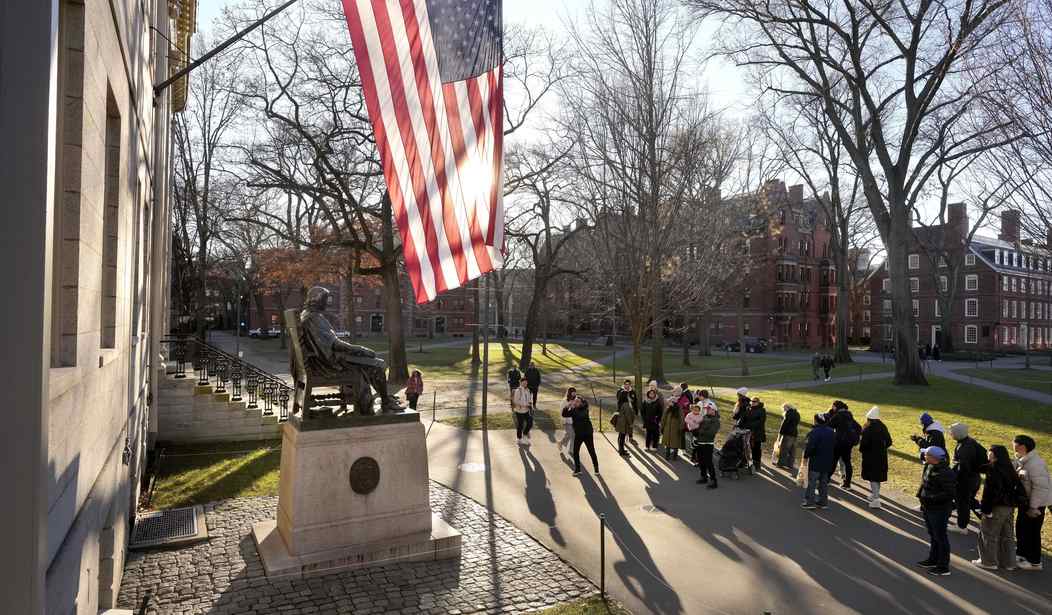Charlie Kirk’s recent remarks about the failings of the modern college system have resonated with many Americans who feel betrayed by the promises of higher education. For decades, young people have been sold the idea that college is the surest route to success.
Yet, the harsh realities of astronomical costs, lack of job readiness, and diminishing returns on degrees have proven otherwise. The truth is now clear: the traditional college model has failed, and for many, it is nothing short of a scam.
The academic elites and so-called elite academic journals are responsible for this.
Let’s start with the numbers. According to recent data, the average cost of a four-year degree at a public university exceeds $100,000, and private institutions often charge double or even triple that amount. Despite this, USA Today reported that one college or university closed in the United States each week this year.
To finance this staggering expense, students are taking on crippling debt. As of 2024, total U.S. student loan debt has surpassed $1.8 trillion, with the average borrower owing around $37,000 upon graduation. Many spend decades under this financial burden, delaying homeownership, marriage, and starting families.
And for what? The promised return on investment is increasingly elusive. A degree no longer guarantees a well-paying job. Graduates enter a workforce where their expensive credentials often don’t translate to marketable skills. Even those with advanced degrees—Masters, PhDs, and other doctorates- fail to get hired and beg for reform.
Recommended
The core promise of higher education is that it prepares young adults for the workforce. Yet employers consistently report that many graduates lack the skills to succeed in today’s economy.
Critical thinking, problem-solving, and even basic communication skills are often absent. Instead, colleges seem more focused on ideological indoctrination than equipping students for the real world. Gender studies, critical theory, and other niche disciplines have often taken precedence over in-demand fields like engineering, business, or computer science.
In many institutions, curricula include courses that prioritize activism over academics, and faculty members go above and beyond to ensure this activism is rewarded! But spending a decade rewarding students for virtue signaling and taking offense over self-reliance and learning in-demand skills has consequences.
As the Chronicle of Higher Education has reported, faculty are experiencing disturbing levels of disconnection among students, using words like “defeated,” “exhausted,” and “overwhelmed.”
This misalignment between what colleges teach and what the job market demands leaves graduates burnt out and ill-prepared to compete. A staggering 40% of recent college graduates are underemployed, working in jobs that don’t require a degree. This is not sustainable, and we are on a collision course that will be catastrophic.
The problems with college extend beyond economics. Many universities have become breeding grounds for anti-American sentiment, fostering division rather than unity. Instead of promoting the timeless values of free speech, meritocracy, and critical debate, colleges often silence dissenting voices, particularly those of conservatives. Students are graduating unprepared for the workforce and with a skewed understanding of the world and a disdain for the principles that built this nation.
If students are not benefiting, who is? The answer is simple: the colleges themselves—specifically, the academic elites and elite journals. Universities rake in billions from tuition, fees, and taxpayer-funded subsidies.
Academic journals receive billions in revenue by controlling the publishing process, which is used to promote or demote academic faculty. This encourages researchers to study and publish politically biased topics. Together, academic journals spend lavishly on administrative bloat and luxurious facilities, while graduates are left to foot the bill. Meanwhile, academic elites enjoy cushy salaries and job security, shielded from the consequences of their institution's failings.
This isn’t just bad economics—it’s predatory. Colleges operate like businesses, profiting from young people's hopes and dreams while offering little in return. Their marketing strategies are designed to sell a lifestyle rather than an education, exploiting the social stigma associated with not having a degree.
Beyond this, many elite academics and journals collude to prevent competition. They denigrate trade schools, where students can learn in-demand skills at a fraction of the cost, while also attacking companies that train students to get jobs outside of academia. Most egregiously, they use the courts to prevent their own faculty and postgraduates from getting overtime pay.
Academia, in its current form, is dying. Cheap labor and gaslighting its current faculty and students are all that keep it alive. If the current trajectory continues, we are heading for a societal disaster. A generation saddled with debt and devoid of practical skills is a recipe for economic stagnation and social unrest. It’s time to challenge the orthodoxy that college is the only path to success.
First, we need to expand and promote alternatives to traditional higher education. Trade schools, apprenticeships, and online learning platforms can provide cost-effective, practical training that leads directly to employment.
Second, colleges must be held accountable for the outcomes of their graduates. Universities should share in the financial risk if they want to charge exorbitant tuition. Shared incentives, where institutions receive funding or even accreditation solely based on the percentage of their students who get into quality jobs after graduation, would align motivations and force colleges to prioritize job readiness.
Charlie Kirk’s critique of the college system is not just a conservative talking point; it’s a wake-up call for all Americans.
The current model of higher education is unsustainable, exploitative, and purposely kept intact by the elites. By exposing its flaws and promoting practical alternatives, we can help young people achieve success without falling into the traps of debt and disillusionment.
The time has come to break the cycle and build a better future that values skills over status, results over rhetoric, and opportunity over ideology.
Dr. Isaiah Hankel, Ph.D., is a 3X best-selling author and the CEO of the Cheeky Scientist!

























Join the conversation as a VIP Member